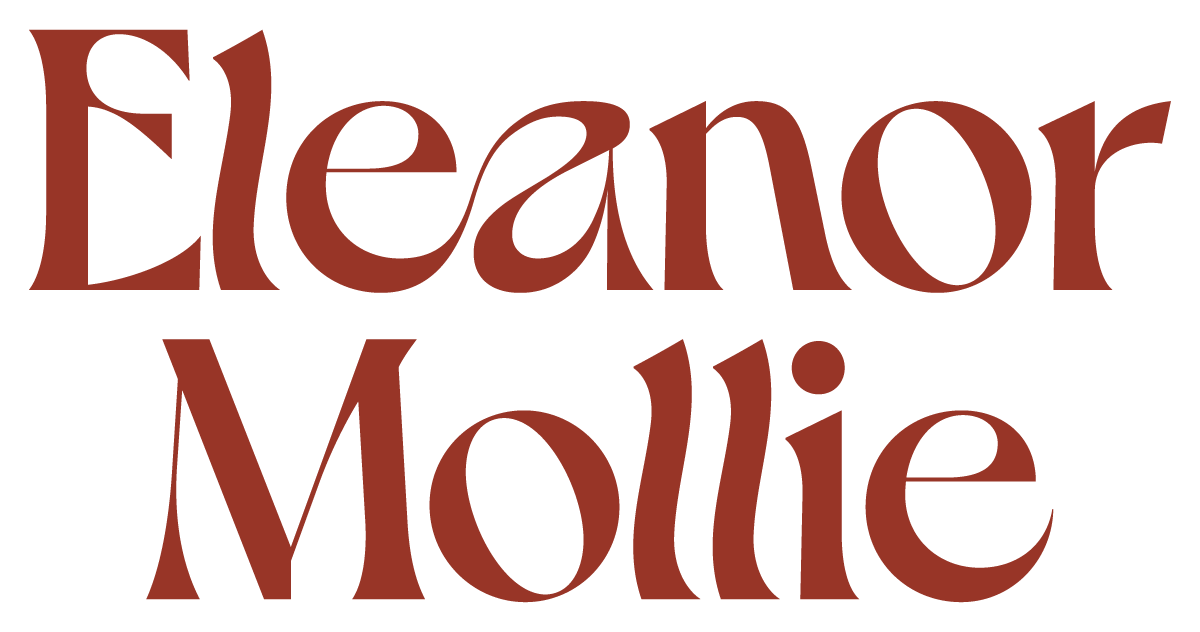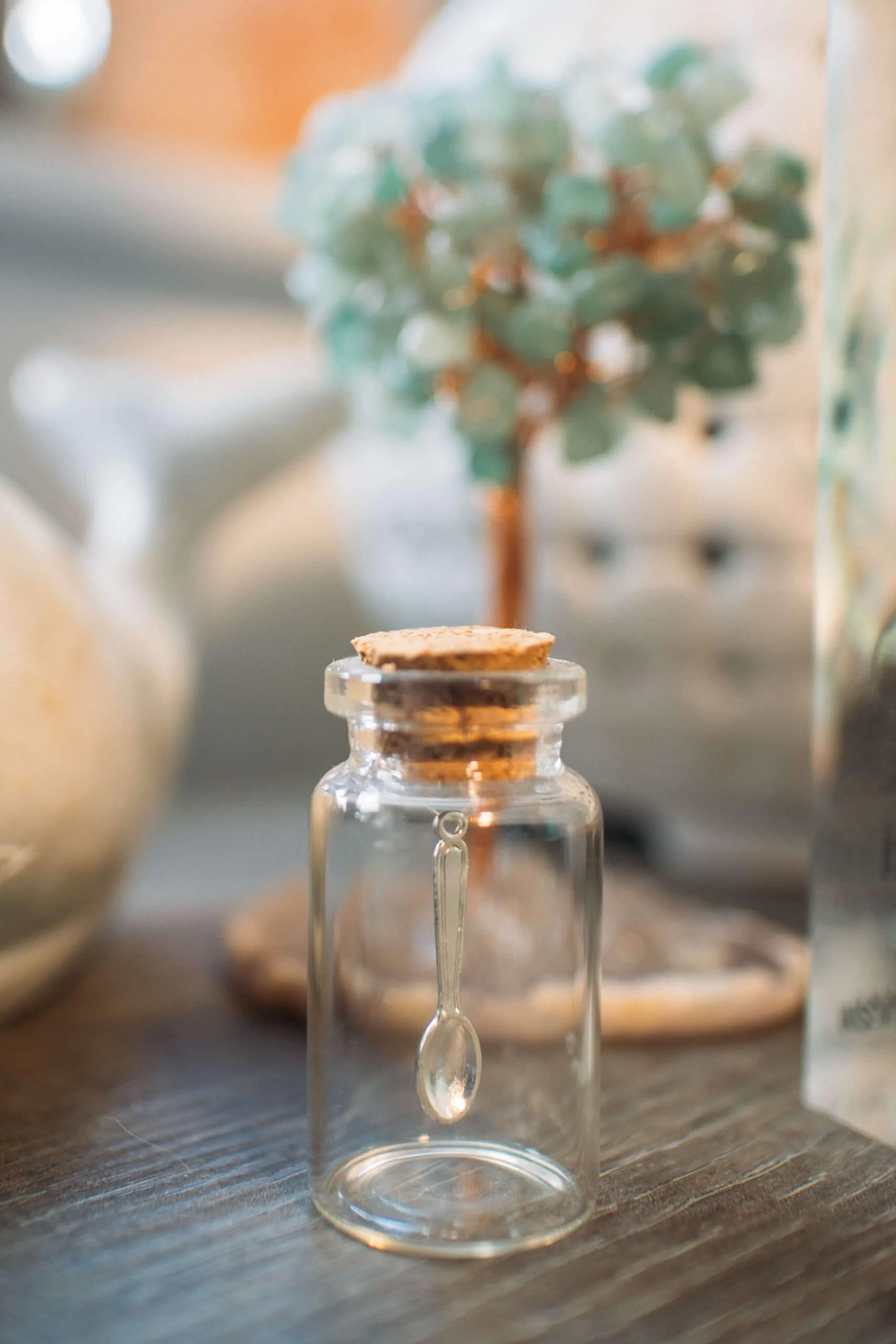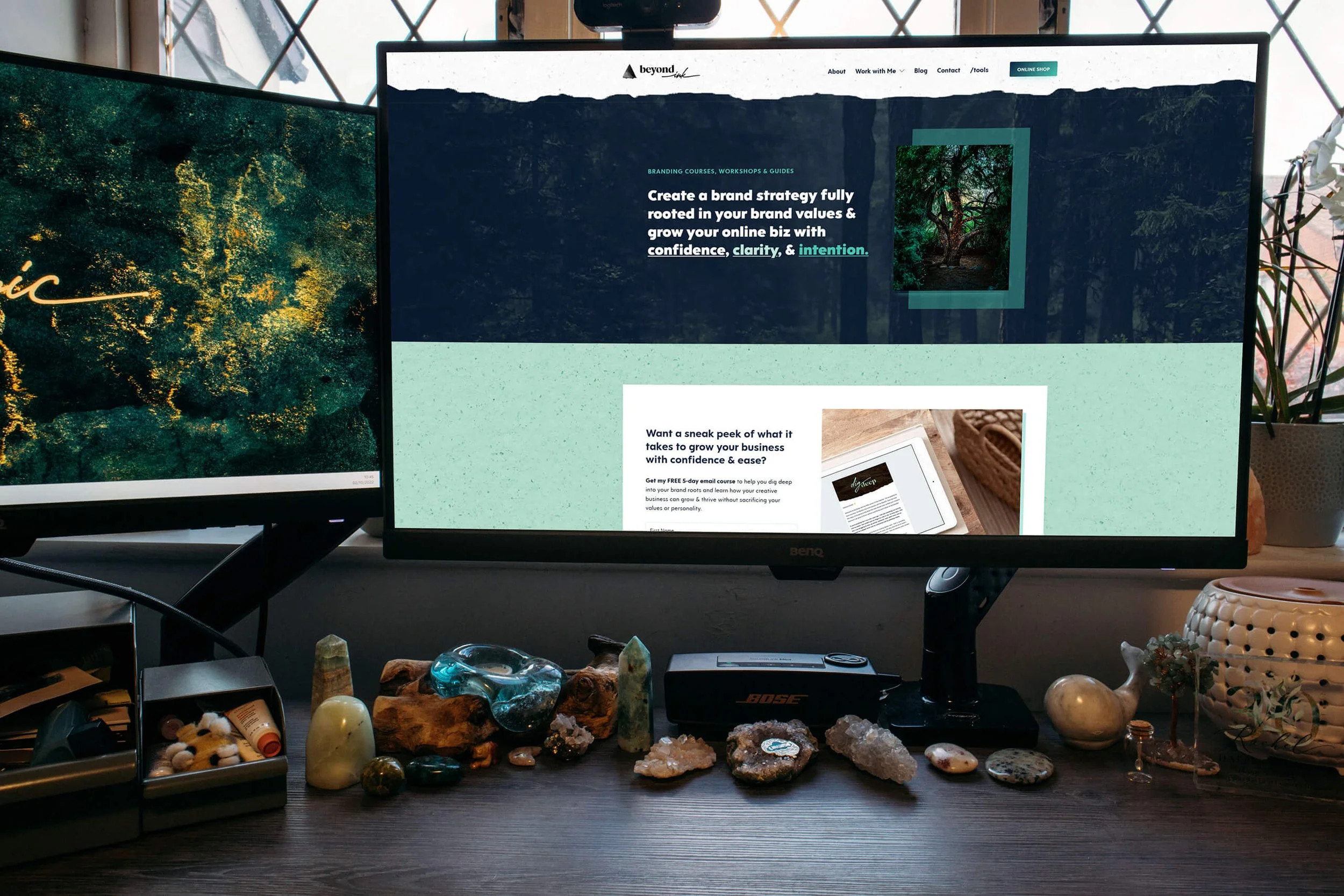How to choose what you share online, with Rachel Shillcock
As you know, personality is my main bag here at Eleanor Mollie — over and above being a small business copywriter, I’m a copywriter who wants to help you bring out more YOU in your words.
The prevailing wisdom in the business world for so long has been that professionalism and personality are separate things, never to be mixed. Frankly, I think that’s rubbish — especially if you’re a small creative business owner, I not only think you can be personal in your business, but that you definitely should. (That’s why I started this new blog series, “They’ve Got A Great Personality”: to celebrate the business owners who are doing business on their own terms, showing up as their full selves, and injecting that wonderful personality into everything they do.)
However, this approach can come with its own challenges: mainly, how can you decide which of the personal elements you want to share, and which you want to keep to yourself? Well, today I’m chatting to the lovely Rachel Shillcock: creative mentor, designer, leader of the UK chapter of Rising Tide, and disabled and chronically ill business owner, about exactly this.
This conversation was inspired by a really thought-provoking set of instagram stories Rachel did around how comfortable she was talking about a particular diagnosis she received, in contrast to a different medical issue she’d had a couple of months previous which she wasn’t comfortable talking about. Rachel’s perspective on how she knows how much of herself to give to her community, clients, and customers, and how much she wants to retain for herself, is brilliant.
Hiya Rachel! What do you do?
Hellooo! I’m Rachilli and I’m a brand designer & tech geek turned creative mentor. I’ve been running my own creative business for the last 10 years & I’m a creative person at heart - I taught myself to code at age 11, I wrote my own little magazine when I was in school and I’ve had a camera in my hand most weeks since I was a teenager!
It’s no surprise to anyone really that I ended up doing something creative in my work & after a decade in business I’ve recently started stepping into more of a creative mentor role as well, where I’m helping other creatives & people with their own small business with a number of creative, biz or tech challenges they might be having.
What's your approach to your content? Do you have a strategy, or do you freewheel?
I’m the first to advocate to my clients that they need a solid marketing & content strategy in place, but I tend to wing it a bit more when it’s my own! I know that I’d benefit from a proper content strategy but I also love the freedom of being able to create content on the fly, and I’ve recently started treating my social media content in particular as more of a creative journal, kind of how I used to a few years ago!
I think content strategy has become such a hugely restrictive thing for myself that I only tend to think about it more when I’m blogging or doing my email newsletters - for social, I feel like I need a bit of breathing room and to have something that gives me brain a place to ramble and wander, and doesn’t feel quite so strict or intentional. I found that I was really missing how social media used to be.
You recently shared that you had different feelings about sharing an injury vs a topic you talk about often, living with a chronic condition: could you talk a bit about that?
I think this was a couple of different things in play all at once. When it comes to sharing about my chronic illness, I always go back to that saying from Nadia Bolz-Weber of leading from the scar, not the wound. I’ve only found this out through experience of sharing when I wasn’t ready, and I don’t like how that made me feel, but I also felt like I could never really articulate myself properly and never had the distance from it to talk about it in the way I wanted to.
Since then, I’ve always followed that rule of thumb - if I have (generally, as best as I can as someone that won’t ever really be fully “better”) healed and moved through an experience as a chronically ill person, then I’m comfortable in talking about it. This is often the case when it comes to talking about my general experiences, my flares, my reflections. But when things feel much more in-the-moment - like painful flares, injuries, or experiences with doctors at appointments (the ableist experiences are rife there, unfortunately!) - that feels harder to talk about. So setting boundaries around when I’ll talk about things feels much easier for me to manage and helps me figure out when I’m best to - and feel ready to - talk about something.
The other aspect is that my chronic illness is generally invisible. Unless I’m limping due to a flare up or using my walking stick on days when I’m out and about and need the extra support, you’d have no clue that I’m disabled. When it came to the injury, it was something that was both very visible and there was no hiding it - it was on my lip, on my face, something that couldn’t be hidden.
It was something I felt incredibly vulnerable about…
How do you decide what you're comfortable sharing and what you're not? How did you find those boundaries?
I spoke about the quote from Nadia Bolz-Weber about leading from the scar, not the wound, and that’s been a huuuge help to me in figuring out what to share. I often ask myself the questions of:
does this still feel raw to me?
do I still almost wince mentally when I’m thinking about this?
do I want to share this?
and the final, key one - does it feel safe to share this?
That final one is so important - if something feels unsafe, or even unsteady and makes me feel more insecure to share… I simply won’t share it. It’s not worth putting myself in possible harm’s way - even if it’s only from myself or my own mental worries about something! But quite often you can receive backlash online, and if something feels more likely to cause that to happen for me then I’ll often not share it.
Sometimes there’ll be times where even despite the answer to those questions mostly being a yes, it feels important enough to talk about in the moment. Those are often far and in between, the times when something is so astonishing or I really want to talk about as an experience with others. There’s also the odd story on Instagram I’ll share when I’ve been in the middle of a notorious flare, for the sake of still “showing up online” when I’m feeling rough… but I don’t do them often, or that’s all my content would be!
And I’m aware of wanting to raise awareness of what it’s like to live as a disabled, chronically ill person in an effort to normalise it in a very ableist world - but I also have to protect my own mental health, something I’ve not always done in the past, and for me making sure that I don’t share things too early is paramount to looking after myself both physically and mentally.
When I first mentioned about my accident, it was more than a week later, the day after I had my stitches out. Before that I had no idea at that point what I was even going to look like - and I was also feeling ashamed of that. I had so many emotions going on, but I’d also just been ready to ramp things up in my business and from a content perspective I’d been hinting at new things that were coming and to be announced the week after my accident.
It knocked me for six, and I knew that I couldn’t show up in the way that I’d wanted to AND also get everything launched that I wanted to. So I pushed back what work and projects I could, and gave myself the space to heal. As hard as it was, I ended up posting a photo with a picture of me with my lip scabs and scars showing, and just let everyone know what had happened - but also asked them to not ask me to explain what happened as I didn’t need or want to let anyone know. I had messages from people letting them know how grateful they were to me for putting that out there, as they had no idea that they could either not talk about things that were uncomfortable to them like their chronic illness, or they’d shared in the past and had backlash from friends or clients and weren’t sure how best to share in the future. To many people, they didn’t even know it was an option to not have to share all the details - and that was so worth sharing it for me, because I’ve always said that if what I share helps even just ONE other person it’s worth doing.
For me, the reason I even did that post - as I know I didn’t have to! - was because I wanted to put it out there that this thing had happened, in case anyone saw in the future and started asking questions. To me, it was the most obvious thing in the world, the first thing I saw when I looked at my face - and I know to others, particularly from a distance, it just looked like a rampant cold sore or something similar. But I wanted to put it out there and have my story said without having to go in to the details.
What would you say to people who feel like they have to share all of themselves online?
I’ve learned this the hard way, but I honestly don’t think it’s healthy for us to share everything. And I think when you feel like you HAVE to share everything that’s when you need to simply stop, reflect, and figure out what feels good & safe for you to share. Although there are a lot of parts of my life I share in terms of chronic illness, disability, and my creative work & process there’s a lot of my life that I don’t share to balance that out. I think it’s important to feel like you have some things to yourself, that you don’t share online. It helps create a separation between online and offline life, and when so much of our lives are online I think it feels harder to switch off. At the end of the day, you have to look out to yourself when it comes to sharing anything online - and create strong boundaries for yourself around what you want to share to help make it easier on you to figure out when to share & when to keep it to yourself.
Thank you so much for chatting, Rachel! If you wanna keep up to date with Rachel’s work, follow her on instagram @rachilli, and check out her newest offerings over on her website.



